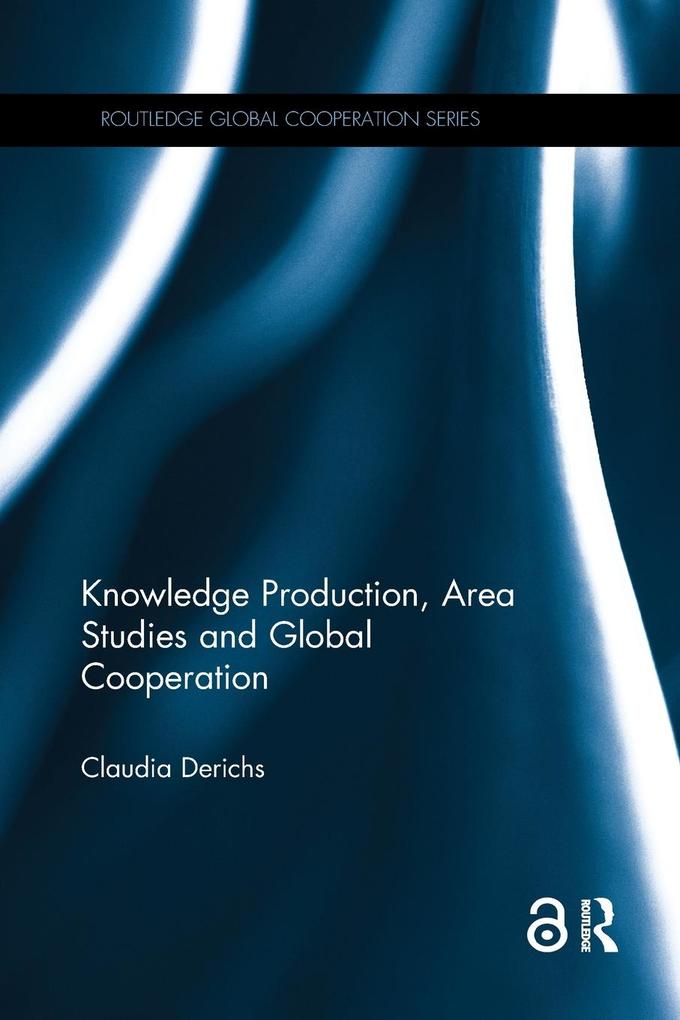
Zustellung: Mo, 19.05. - Do, 22.05.
Versand in 6 Tagen
VersandkostenfreiBestellen & in Filiale abholen:
Knowledge Production, Area Studies and Global Cooperation questions the assumption that groups of people should be defined be geographical boundaries, arguing instead that individuals often feel more connected by shared values and principles than by conventional spatial dimensions. The book demonstrates that an understanding of pluri-local connectivity should be integrated into the production of knowledge about different areas of the world and the behavioural dimension of global cooperation. By shifting the view from the collective to the individual and from the formal to often invisible patterns of connectedness, this book provides an important fresh perspective which will be of interest to scholars and students Area Studies, Global Cooperation, Politics, International Relations and Development Studies.
Inhaltsverzeichnis
- Introduction: Knowledge Production, Area Studies and Global Cooperation The problem of defining knowledge
- The Islamisation of Knowledge Naguib Al-Attas: Islam and secularism
- Review: Spill-over and diffusion Islamic resurgence
- Empirical case studies: Islamic economy and Islamic feminism Assessing religion, economy and advocacy
- At Home Away from Home (Emotional Geographies) Trans- and pluri-local settings
- Tunnel Views in Area Studies Critical assessments of area studies
- Connectivity and Cooperation: Concluding Thoughts
Area studies and disciplines
Knowledge production, international relations and global cooperation
Part I: Alternative Epistemologies
Isma'il Al-Faruqi: the tauhîdic worldview
Seyyed Hossein Nasr: sacred science
Fazlur Rahman: Islam and modernity
Evaluations of the Islamisation of knowledge project
IoK as a project of its time
Islamisation in education and its political reception in Malaysia and Indonesia
Primary to tertiary education
Campus dakwah
Malaysia
Indonesia and the tarbiyah movement
Transregional connections
Diffusion into policymaking and economic practice
Laws and verdicts
Female perspectives on "Islamised" policymaking
Diffusion into economy
Conclusion
Commodification, commercialization and aestheticisation of religion
The Islamisation of knowledge and its repercussions
Domestic political contexts
Beyond domestic politics
Islamic economy and sharî'aised workplaces
Gender justice and transnational Islamic feminism
Pulling the strings together
Part II: Areas and Pluri-Locality
Knowledge entrepreneurs
Trans- and pluri-local networks
Translocal areas
Conclusion
Scales and geographies
Areas and disciplines in postcolonial perspective
Conclusion
The cooperation hexagon and meccanomics
Religion and international cooperation
Epistemic approaches and behavioural dimensions
Knowledge production, area studies and global cooperation
Produktdetails
Erscheinungsdatum
17. Januar 2019
Sprache
englisch
Seitenanzahl
216
Autor/Autorin
Claudia Derichs
Verlag/Hersteller
Produktart
kartoniert
Gewicht
336 g
Größe (L/B/H)
234/156/12 mm
ISBN
9780367172664
Entdecken Sie mehr
Bewertungen
0 Bewertungen
Es wurden noch keine Bewertungen abgegeben. Schreiben Sie die erste Bewertung zu "Knowledge Production, Area Studies and Global Cooperation" und helfen Sie damit anderen bei der Kaufentscheidung.











